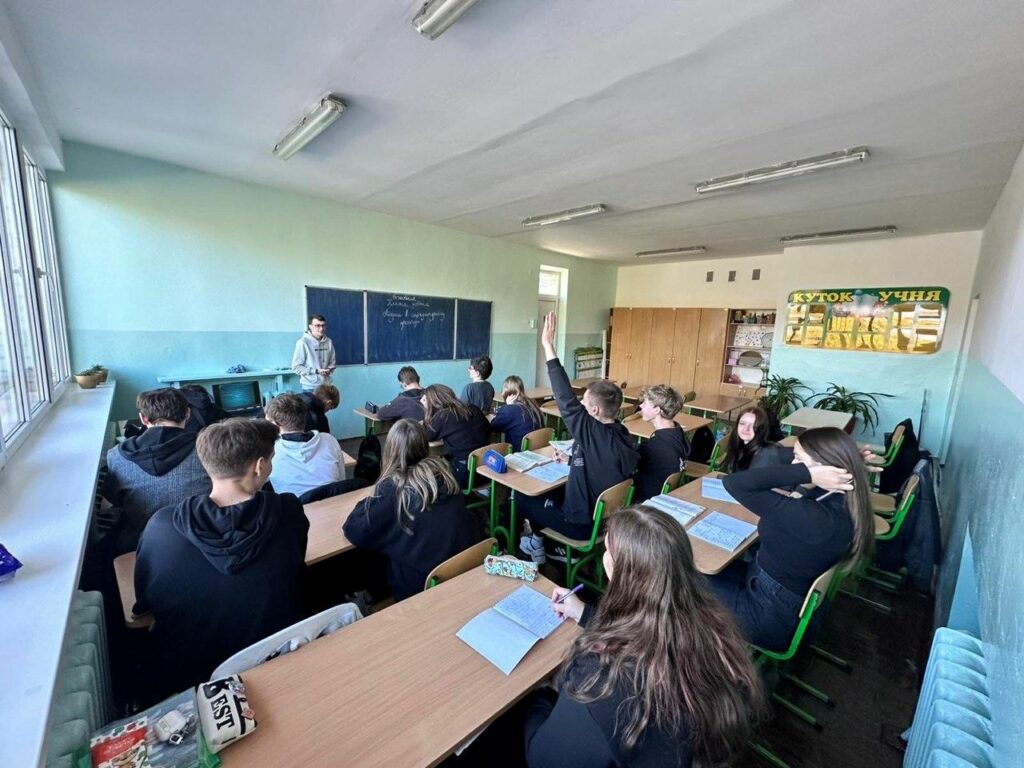On October 14, 2024, as part of his industrial (pedagogical) practice in secondary education institutions, Marian Stefanyshyn, a second-year master’s student in the specialty “Secondary Education (History)”, conducted an interesting civic education lesson for 10th grade students of Lyceum No. 2 of the Ivano-Frankivsk City Council using modern educational technologies (head-methodologist – leading specialist of the Institute of History, Ethnology and Archaeology of the Carpathians Bohdan Paska). The topic of the lesson: “A person in socio-cultural space. Socio-cultural diversity. Social structure, cohesion, value, responsibility, equality. Gender, ethnic, confessional diversity.”
The lesson was aimed at developing students’ understanding of socio-cultural diversity and its impact on the development of society. The main attention was paid to the concepts of social structure, equality, responsibility and cohesion in society. During the lesson, the student-intern used materials from a visual presentation, which helped to facilitate the perception of the material and make it more accessible to students.
To motivate students’ learning activities, a QR code was used in the lesson for an interactive quiz. Students scanned the code with their smartphones, which allowed them to quickly take a test and check their knowledge in the form of a game. This approach significantly increases students’ interest in the learning process. Group work was also organized, during which students discussed various aspects of socio-cultural diversity and its importance in the modern world.
The developmental goal of the lesson was to develop students’ critical thinking skills, analysis of socio-cultural phenomena, as well as the ability to work with information resources and modern technologies. During the lesson, students improved their ability to cooperate in groups, which contributed to the formation of their communicative competence. Group tasks allowed students to discuss issues of social diversity and seek joint solutions to problems of social equality. Working with a QR code improved their digital competencies and stimulated the rapid exchange of information. The lesson had not only an educational and developmental, but also an educational goal – to promote the development of tolerance, respect for other cultures and the formation of a sense of responsibility for supporting equality in society.

